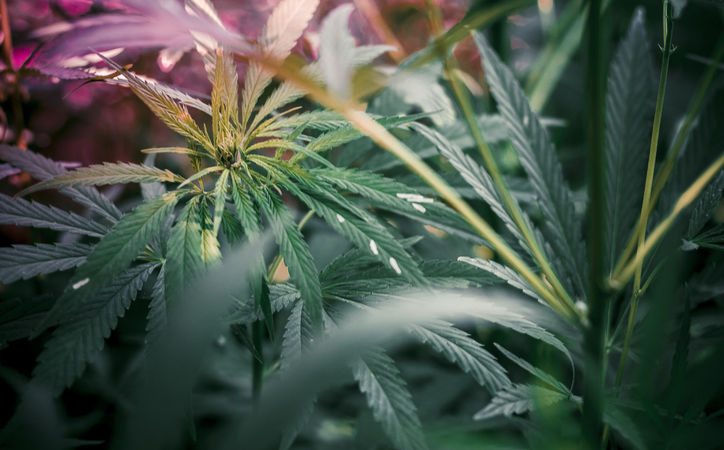We’re less than one year away from the November 2020 election, and it’s likely that voters in multiple states will have the chance to weigh in on legalization and taxation of marijuana. Numerous petitions for initiated state statutes and constitutional amendments have been approved for circulation and many state legislative chambers are up for re-election. The status of cannabis under federal law and the variety of state taxation models means marijuana businesses face a complex tax compliance environment at both the federal and state levels. The ballot measures in play for 2020 continue this trend and include diverse proposals for excise taxes, sales taxes, and even prohibitions on taxation.
Here are some of the states to watch next year:
Arizona
Several initiatives look to legalize recreational marijuana. Under one initiative titled the Smart and Safe Arizona Act, marijuana sales would be taxed at 16% of the sale price, provided the combined total state and federal tax (should one be imposed on cannabis in the future) not exceed a rate of 30%. A separate legalization initiative would impose a sales tax on marijuana equivalent to the state’s general sales tax. The deadline for signatures is July 2020.
Arkansas
Two potential initiatives would legalize recreational marijuana via constitutional amendment. One would impose an additional sales tax (up to 10%) on retail sales of some marijuana products and prohibit excise taxes on wholesale sales. The other proposal would apply the state’s general sales tax to marijuana sales as well as impose an 8% excise tax and a 5% local sales tax. The deadline for signatures is July 2020.
California
California already has a robust legal adult-use cannabis market. However, there are two initiatives that would redefine key terms like cannabis, marijuana, and hemp. These terms would be grouped into a single “cannabis hemp” definition, and then further defined by the intended use of the product (euphoric, medicinal, nutritional, industrial). Both Initiative 19-0010 (California Cannabis Hemp Initiative 2020) and Initiative 19-0011 (Cannabis Hemp Heritage Act of 2020) would impose an excise tax on the commercial sale of “cannabis hemp euphoric products” and cap total excise taxes at 10% of the retail price. The deadline for signature verification is June 2020.
Florida
Several cannabis-related proposals are vying to appear on the Florida ballot in 2020. The Florida Supreme Court must approve the language of each proposal and proponents must submit verified signatures by February 2020. The Florida Marijuana Legalization and Medical Marijuana Treatment Center Sales Initiative would provide for recreational legalization but leave the question of taxation up to the legislature. Initiative #16-02, the Florida Cannabis Act, would similarly legalize recreational-use cannabis and authorize the legislature to provide for taxation. While #16-02 has not yet gained near the required number of signatures to appear on the ballot, the Florida Supreme Court is scheduled to hear arguments regarding the measure’s language on February 4, 2020. The state’s Attorney General has asserted the proposal is too long and ambiguous for voters to easily understand. Two other marijuana-related initiatives (#18-02 and #18-05, addressing definitions and qualifying conditions) are also looking to qualify for the ballot; these two proposals do not contain provisions impacting taxation.
Idaho
Idaho is one of only four states that does not authorize some type of medicinal marijuana (other than FDA-approved medicines), despite several attempts since 2015 to pass limited legalization of low-THC cannabidiol. The Idaho Medical Marijuana Initiative would impose a 4% excise tax on marijuana sold to qualifying patients, in addition to any other state and local taxes. The deadline for signatures is May 2020.
Mississippi
The only facility currently authorized by the federal Drug Enforcement Agency to grow marijuana for research purposes is the University of Mississippi.* But the state of Mississippi has not created a legal framework for medicinal or recreational sale of marijuana. The Mississippi Medical Marijuana Amendment, which received enough certified signatures by the October 2019 deadline to appear on next year’s ballot, would amend the state’s constitution to authorize medicinal marijuana. The measure would permit taxation on the final sale of medicinal marijuana up to the same rate as the general state sales tax.
*Per a DEA press release in August, additional entities have applied to grow marijuana for research purposes, but the agency intends to issue new regulations on the topic before acting on these pending applications. No timeline for the proposed regulations or application decisions was provided. The agency has not approved any additional research cultivators since first authorizing issuance of additional licenses in 2016.
Missouri
In 2018, Missouri voters amended the state’s constitution to allow for a legal framework for medicinal cannabis, with a 4% tax on retail sales. For 2020, two potential amendments could expand legalization to recreational use. Under Measure 2020-126 (Constitutional Amendment to Article XIV Relating to Marijuana Use and Taxation) the 4% tax on medicinal sales would remain and recreational sales would be authorized and subject to a 15% sales tax in addition to existing sales taxes. Measure 2020-070 (Constitutional Amendment to Article IV Relating to Marijuana Use and Expunging Cannabis-Related Criminal Records) is much broader as it relates to legalization and decriminalization. This measure would prohibit taxation of medicinal-use cannabis; taxation of recreational-use cannabis is not directly addressed. The deadline for signatures is May 2020.
Nebraska
Like Idaho, Nebraska has not authorized sale of recreational or medicinal cannabis (with the exception of certain cannabidiol and industrial hemp products). The Nebraska Medical Marijuana Initiative would amend the state’s constitution to allow for medicinal marijuana, while the Nebraska Cannabis Legalization Initiative would allow for both medicinal and recreational marijuana. Neither initiative addresses taxation. The deadline for signatures is July 2020.
New Hampshire
The state’s Republican-controlled House of Representatives passed a bill (HB 640) in 2019 that would have legalized recreational cannabis. The Democratic-controlled Senate Judiciary Committee voted to hold the bill in committee until 2020 and Governor Sununu, a Republican, has pledged to veto it if it passes. While the legislature has been able to override his veto of other marijuana bills in recent years, it’s not clear the margin of support for HB 640 is large enough to withstand a veto. All seats in both legislative chambers are up for election in 2020; the election for governor will take place in 2021.
New Jersey
New Jersey has a legal framework for medicinal marijuana sales, and advocates have been close to passing recreational legalization in the legislature in recent years. While the legislature will likely take up some issues related to cannabis in 2020, a supermajority of both chambers voted this week to leave the recreational legalization decision to the voters next November. Under the proposed constitutional amendment (SCR 183), retail sales of recreational cannabis would be subject to the state’s general sales tax and allow the legislature to pass a law providing for local option taxes up to 2%.
New Mexico
No proposals have yet been submitted in New Mexico to initiate a state statute or constitutional amendment addressing recreational marijuana legalization. A legalization bill passed the New Mexico House in 2019 but stalled in the state senate. A Cannabis Working Group set up by New Mexico Governor Michelle Lujan Grisham issued recommendations in October that could facilitate passage of a legalization bill during the state’s short legislative session in January 2020. The working group recommended that total tax rates stay between 15-25% (allocated as follows: 5% state excise tax, 5.125% gross receipts tax, 5% local excise tax, and 2% local gross receipts tax).
New York
In the 2019 legislative session, New York came very close to legalizing recreational-use marijuana sales via The Marijuana Regulation and Taxation Act. The Governor and legislators advocating for the bill could not reach an agreement on several core features of the law, including how resulting tax revenues should be allocated. The governors of Connecticut, New Jersey, New York, Pennsylvania, and Rhode Island held a “Cannabis and Vaping Summit” in Manhattan in October 2019 and agreed to a “series of principles” for cannabis taxation including coordinating tax rates and the basis of the tax (weight, potency, etc.).
North Dakota
Two proposals for recreational legalization may be in front of voters in North Dakota next November. The North Dakota Decriminalize Marijuana Possession, Cultivation, and Growth Initiative does not include any provisions on taxation. The North Dakota Marijuana Legalization Initiative would impose a 10% excise tax in addition to existing state and local taxes. The latter initiative is a rewritten version of a measure that failed 59%-41% in 2018. Once approved for circulation, the deadline for signatures is July 2020.
Oregon
Oregon has a robust legal framework for recreational and medicinal marijuana sales. The state imposes a 17% tax on retail sales of marijuana items and authorizes municipalities to impose up to a 3% tax on these transactions (medicinal marijuana sales are exempt from the marijuana sales tax). One proposed initiative would amend how cannabis tax revenue is allocated. The other proposed initiative would authorize delivery of cannabis and lounges where on-premises consumption is permissible. While this measure does not directly address taxation, the sourcing and rates that apply to a particular cannabis sale may depend on whether delivery or on-premises consumption is involved. The deadline for signatures is July 2020.
South Dakota
South Dakota does not have a legal market for recreational or medicinal marijuana sales, apart from FDA-approved cannabidiol. A 2018 initiative would have authorized medicinal marijuana in the state, but failed to garner sufficient signatures to appear on the ballot. This may be different next time around — supporters of two constitutional amendment initiatives for 2020 have already submitted signatures and are awaiting validation via a sampling audit. One proposal would provide for medicinal marijuana only and does not address taxation, while the other would provide for recreational and medicinal marijuana as well as hemp. The latter measure would impose a 15% excise tax on gross receipts from sales of cannabis to consumers; the rate would be fixed through 2024 and then amendable by standard legislative processes after that date.
Vermont
Vermont currently allows medicinal marijuana sales at licensed dispensaries and home cultivation of recreational-use marijuana. In 2019, the Vermont Senate approved a recreational legalization bill (S.54), which provides for a 16% excise tax on retail sales of cannabis and authorizes a 2% local option tax; no other taxes would apply to the retail sale of cannabis in the state. The bill has thus-far stalled in the House but may be revived in 2020. Democrats control both legislative chambers; the Governor, a Republican, has said he will not sign a bill that does not provide for roadside saliva testing (a procedure that has yet to be proven scientifically reliable). The governorship and all legislative seats in the state are up for election in November 2020.
Washington
In 2012, Washington was one of the first states (along with Colorado) to have voters approve of recreational legalization via ballot measure. An initiative proposed for the 2020 ballot would prohibit marijuana cultivation, processing, and sales in residential zones; it does not address taxation directly.
About the Author Melissa A. Oaks is Current Awareness Lead for Thomson Reuters Checkpoint. Prior to this role, Melissa was a Proposition Manager for ONESOURCE Indirect Tax and Managing Editor of State & Local Tax for Checkpoint Catalyst. Her specialties include complex nexus and apportionment issues and taxation of cannabis. Before joining Thomson Reuters in 2013, Melissa practiced law in New York. Melissa is a graduate of Cornell University and Columbia Law School and earned an LL.M. in Taxation from NYU School of Law. Twitter: @melissaaoaks
ONESOURCE enables global tax compliance and accounting decision-making. In over 180 countries, ONESOURCE helps companies stay in compliance, avoid penalties and audits, save time, and increase efficiency through every step of the tax lifecycle, including corporate income tax, indirect tax, property tax, trust tax, tax information reporting, transfer pricing, data management, and internal processes. For more information on how ONESOURCE and Checkpoint can help you keep up with the changing regulatory environment, visit our ONESOURCE and Checkpoint pages.






